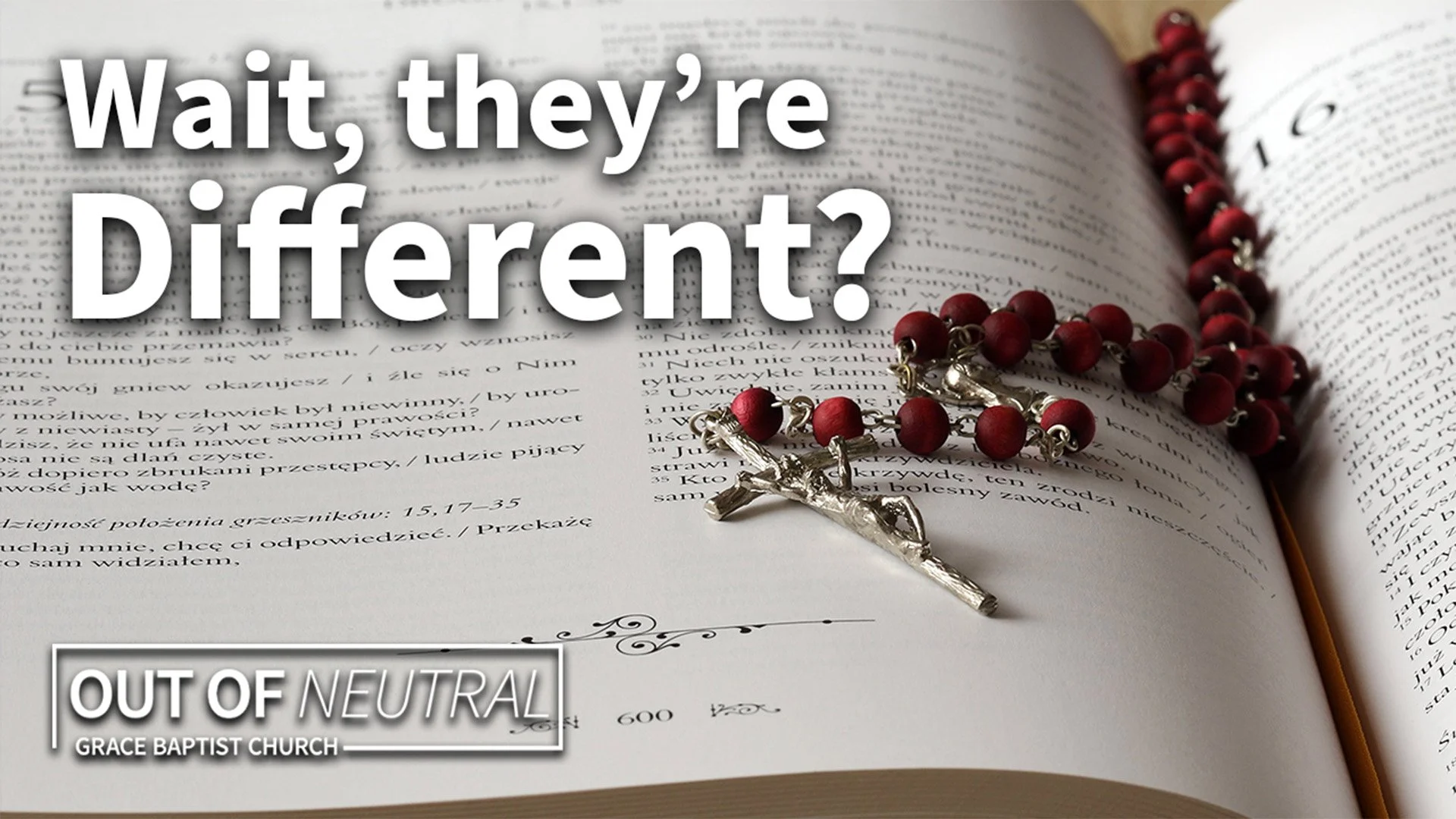Watch
Listen
Read
If you grew up Catholic and visited a Protestant church, you might be surprised to see that they use a different Bible. A Protestant visiting a Catholic church might be similarly taken aback. But it’s not for the reason you might think.
Different translations? No.
Outsiders might assume that the Bible has been changed as it’s been translated again and again over hundreds of years. But that’s not the case. Despite the deep and significant differences between Catholics and Protestants, they agree on the Bible’s translation. The words used to translate the Hebrew and Greek Scriptures into English are almost exactly the same for the 66 books of the Bible that Catholics and Protestants agree on.
Different books, but why?
Where they differ is on which books to include. Specifically, Catholics include an additional seven books in the Old Testament that Protestants reject. Approved Catholic Bibles include Tobit, Judith, 1 and 2 Maccabees, the Book of Wisdom, Sirach, Baruch, and longer versions of the Book of Daniel and the Book of Esther. Understanding why they differ, tells you something important about these 2 churches.
Catholic councils have settled the matter
Catholics call these books “deuterocanonical” to indicate that they were given a final approval at a later date. They point to the councils at Hippo (A.D. 393) and Carthage (A.D. 397) which included the seven books, along with the Latin translation of the Bible completed by Jerome in A.D. 404 which has them. But it wasn’t until the Council of Trent in 1546 that the Catholic Church made an authoritative ruling that these books were holy Scripture. For most, that settles the matter. The councils have made a ruling, so the books are in. Protestants approach the issue differently.
Protestants want to hear God’s Word on the issue
As Protestants have read the deuterocanonical books, they’ve noted that, unlike many other Old Testament books, they never claim to provide a record of God’s words. While they offer historical accounts and various teachings, they don’t claim divine authority.
More importantly, although the New Testament refers to almost every Old Testament book, it never cites the deuterocanonical books as Scripture and never quotes from them. Contrast this with the fact that the Old Testament books are quoted directly over 250 times in the New Testament. Why is there no “it is written” where Tobit, Sirach, or Baruch are concerned? In this case, history provides the answer.
After 435 B.C., the Jews considered the Hebrew Scriptures complete. They rejected the divine authority of the seven books written in the second century B.C. and have never included them in their Bible. If they had gotten this wrong, you would expect Jesus to have set them straight on the matter. His silence is deafening.
The early church seems to have followed the lead of Jesus and the Jews. In fact, the deuterocanonical books don’t appear on any list until late in the fourth century. And even as some Christians began to talk about including them, many of the great church leaders like Athanasius (A.D. 296-373) and Origen (A.D. 185-253) argued against them. So, it was not a surprise when Luther and the other Reformers began to study the Scriptures and speak out about the church’s inconsistencies that they argued the deuterocanonical books (which they called “apocrypha”) should never have been added to the Bible in the first place.
How you read these books depends mostly on where you find your authority. If your confidence is in the pope and the councils of the church, then the deuterocanonical books are in. If you need to be convinced by Scripture, it’s hard to find a reason to include them.
In awe of Him,
Paul














